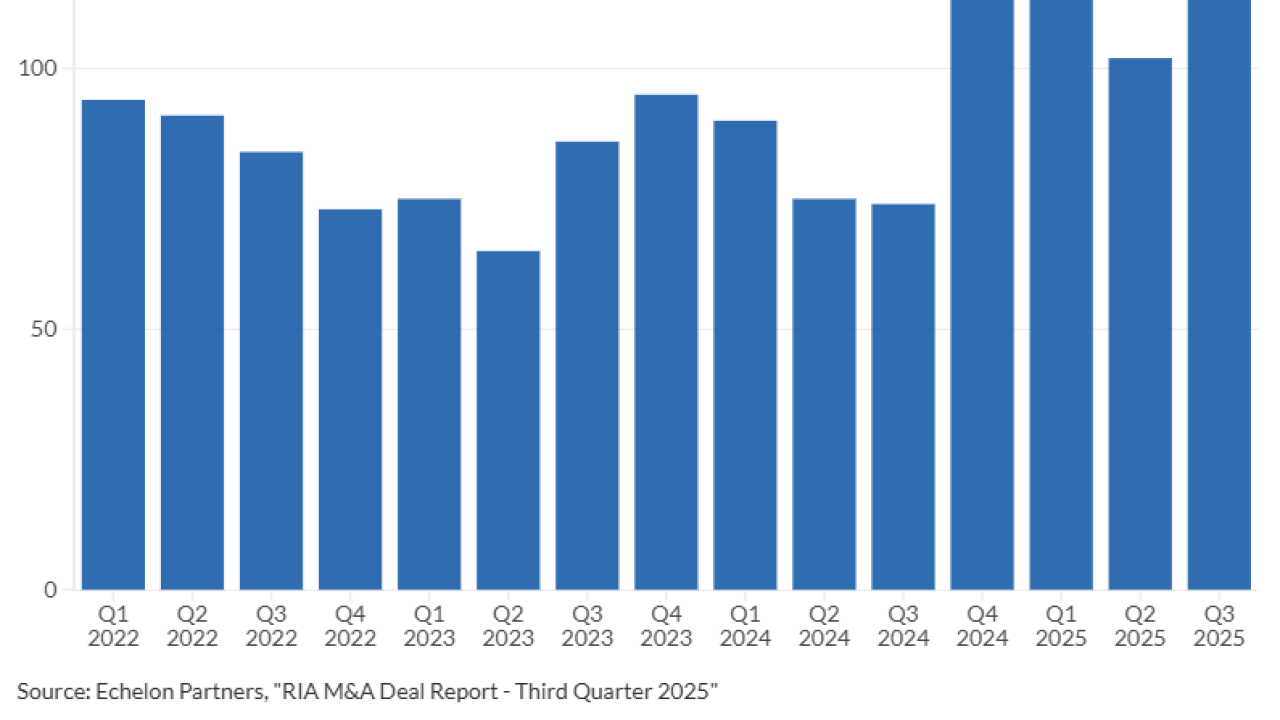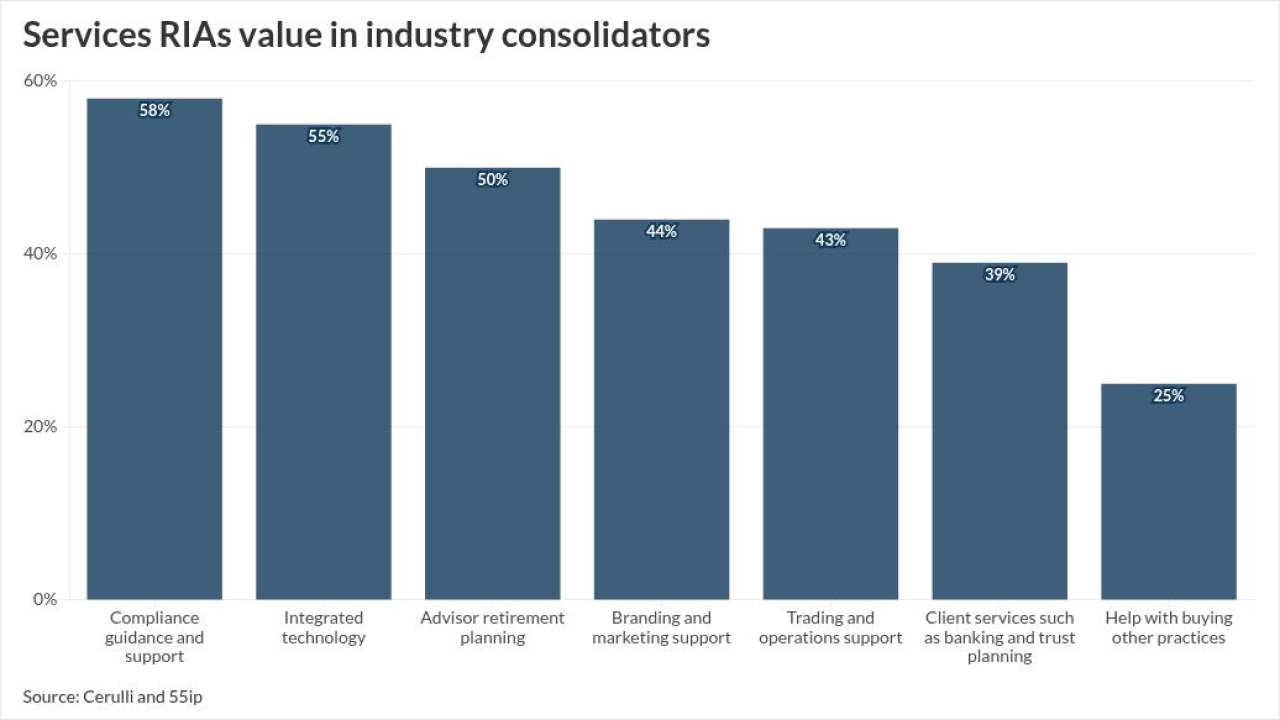Compensation packages aren't what they used to be – and won't look the same tomorrow as they do today.
That's how consultant Andy Tasnady and recruiter Danny Sarch described adviser pay packages in a recent On Wall Street webinar that offered suggestions for maximizing adviser compensation. Whereas firms used to encourage advisers to think of the sale of in-house products as "patriotic," Sarch, founder of Leitner Sarch Consultants, says this widespread practice "has pretty much gone away thanks to the regulators."
Instead, "firms have really aligned around total adviser productivity," Tasnady, head of Tasnady & Associates, says. "Now instead of multiple payout grids due to differing products … there's one core payout grid."

Stiffer regulations, including the Department of Labor's new fiduciary rule, have prompted this shift, both Sarch and Tasnady say. They recommend that to stay current on their compensation, advisers need to delve into the details of their plans to understand them and do what they can to align their behaviors around their firm's expectations, if they want to thrive.
The following tips from the webinar may help advisers maximize their compensation:
1. Read and understand. Compensation plans can be 30 pages or longer, but the devil is in the details, which often change annually, or even more frequently.
"First, make sure you understand your team's compensation plan," says Sarch, who urges advisers to scrutinize them minutely. "Second, assess what the costs are to you, and the penalties, as well. What are the upside opportunities?"
2. Beware small clients. Advisers with a large number of clients with only $50,000 to $100,000 to invest may find themselves out of favor with their firms, Tasnady said.
3. Or, make the small client case. In some cases, smaller clients generate significant business for firms if, for example, they take out mortgages from the bank or provide profitable referrals.
"Those things are enormously profitable to your company," Sarch says. "You should bring these to your manager's attention. "
To further combat the small-client taint, "household" them with larger clients.
"If your HNW client wants you to manage his niece's account," Sarch says, then link the two accounts. That way, firms say, "OK, it's part of that household so we'll give you an exception."
4. Serve long. Some firms offer bonuses for advisers based on their length of service. This can come in the form of a percentage of total compensation paid into an advisor's deferred compensation account.
5. Do – or don't do -- deferred comp. While some advisers find these programs save them in taxes over the long haul, Sarch warns that they are often used as "golden handcuffs" by the firm and don't truly benefit advisers, some of whom end up leaving money on the table.
"To the extent that [firms] can hold a piece of your compensation hostage, then they will," Sarch says.
Tasnady disagrees and thinks deferred compensation has its place.
"If you are planning on staying with a firm, deferred comp can be good for advisers," he says. "It helps spread out the tax impact."
6. Up your numbers. While an up-and-coming new adviser with three years in the profession may be considered a star at $300,000 in annual production, advisers still at that level with eight or more years in the industry may find their jobs in jeopardy.
These veteran advisors often end up in a "penalty box grid," Sarch says. "If you are above $300,000 for a given firm, then the normal grid [payout] might be 30% to 35%. But, at less than that amount, you might get as little as 20%."
7. Team up. Low production advisers may find themselves encouraged to join teams. Some firms allow advisers who work in teams to get paid at the same rate as their highest performing team member.
"That is a very strong incentive for lower-producing advisors to join teams," Tasnady says.
8. Ask one question. "Where can you most quickly achieve $1 million in sales?" Sarch says he asks advisers. "The real issue is trying to grow your absolute sales level and focus on those behaviors your firm is trying to get you to focus on."
9. Don't worship the payout. Sarch says: "You get paid by a paycheck, not a payout."





